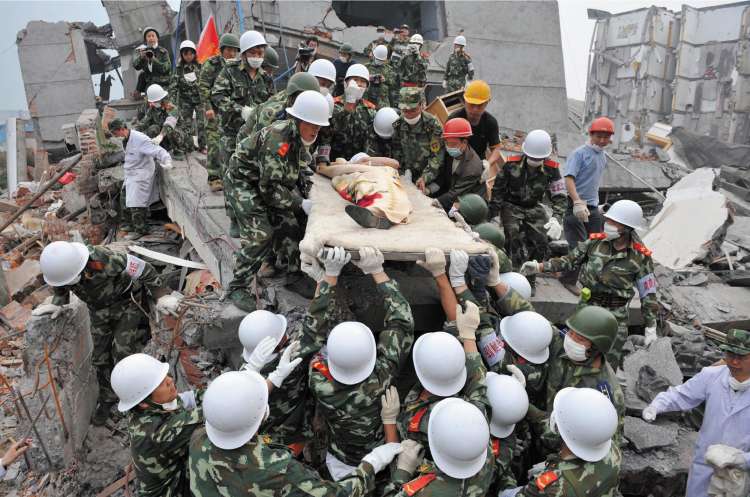Alive! Joy at miracle rescue of Liu Deyun, buried for four days in rubble of his factory

Your support helps us to tell the story
From reproductive rights to climate change to Big Tech, The Independent is on the ground when the story is developing. Whether it's investigating the financials of Elon Musk's pro-Trump PAC or producing our latest documentary, 'The A Word', which shines a light on the American women fighting for reproductive rights, we know how important it is to parse out the facts from the messaging.
At such a critical moment in US history, we need reporters on the ground. Your donation allows us to keep sending journalists to speak to both sides of the story.
The Independent is trusted by Americans across the entire political spectrum. And unlike many other quality news outlets, we choose not to lock Americans out of our reporting and analysis with paywalls. We believe quality journalism should be available to everyone, paid for by those who can afford it.
Your support makes all the difference.It was an agonising 100 hours from the moment the quake struck until rescuers pulled Liu Deyun from the rubble of a fertiliser factory yesterday. Little did he think as went to work on that fateful Monday morning that he would spend the next week entombed in the concertina ruins of his workplace, pinned down under toppled masonry and only able to be freed after sacrificing his left leg in a precarious amputation.
"It was a miracle, but miracles happen through hard work and this happened through our hard work," said Zhao Hongxing, an army doctor who was involved in the painstaking rescue that unfolded in the pulverised mountainside town of Yinghua yesterday. "His first words were 'The army is great'."
Chinese troops may have been the ones to physically free Mr Liu, 50, but it was his daughter Yuan's perseverance, determination and outright refusal to give up looking for her father that ultimately saved his life.
On Thursday night, circling the crumpled factory, the family search party headed by his daughter, heard a muffled cry. "Father! Father!," Yuan yelled. "Yes" came the faint reply. Then, after more than three days buried under the fallen building choking on the dust, came two simple words: "I'm thirsty". The reply was probably not what he was expecting: "Father don't talk! You need your air! I will go and find somebody to rescue you!"
But it was to be another torturous day under the rubble before – 100 hours to the minute after China's worst earthquake in a generation – the fatigued, white-hatted soldiers prised Mr Liu free from the debris yesterday at 6.28pm. The decision to amputate had been approved earlier by his desperate family. "I just want him to live," his daughter Yuan, 23, tearfully told Agence France Presse.
The 12-hour rescue operation to save Mr Liu was fraught with danger. The entire first floor of the Yingfeng Industrial Company building gave way, with the upper storeys collapsing downwards and pushing the building awkwardly to one side. One foot out of place, one piece of rubble disturbed in the wrong way and the whole structure could have come down.
Mr Liu, wrapped in a blanket, was borne away on a stretcher to wild cheers and rapturous applause from a crowd of Yinghua residents, eager for a glimmer of good news at the end of a long week of despair. And with the latest survivor delivered to a waiting ambulance, the rescue workers headed back to the ruins where two more factory employees were clinging on to life, waiting for their turn to be dug out.
Such amazing scenes were being replayed yesterday across Sichuan province, which bore the brunt of the devastation. In the town of Beichuan, three 10-year-old schoolgirls were pulled from the classrooms, where most of their 2,000 fellow pupils met their deaths.
It took two days from a sniffer dog picking up the girls' scent to them being liberated from their concrete prison. With roads to the city blocked, soldiers carried in the rescue equipment on their backs. Working in round-the-clock shifts, they drilled the holes in the concrete needed to wrest the girls to safety.
"We kept talking to each other," said Wang Jingyang when a nurse asked how the trapped classmates had kept their spirits up during the long hours in the dark. When someone asked if she wanted some water, she replied: "No, I want cola."
Join our commenting forum
Join thought-provoking conversations, follow other Independent readers and see their replies
Comments